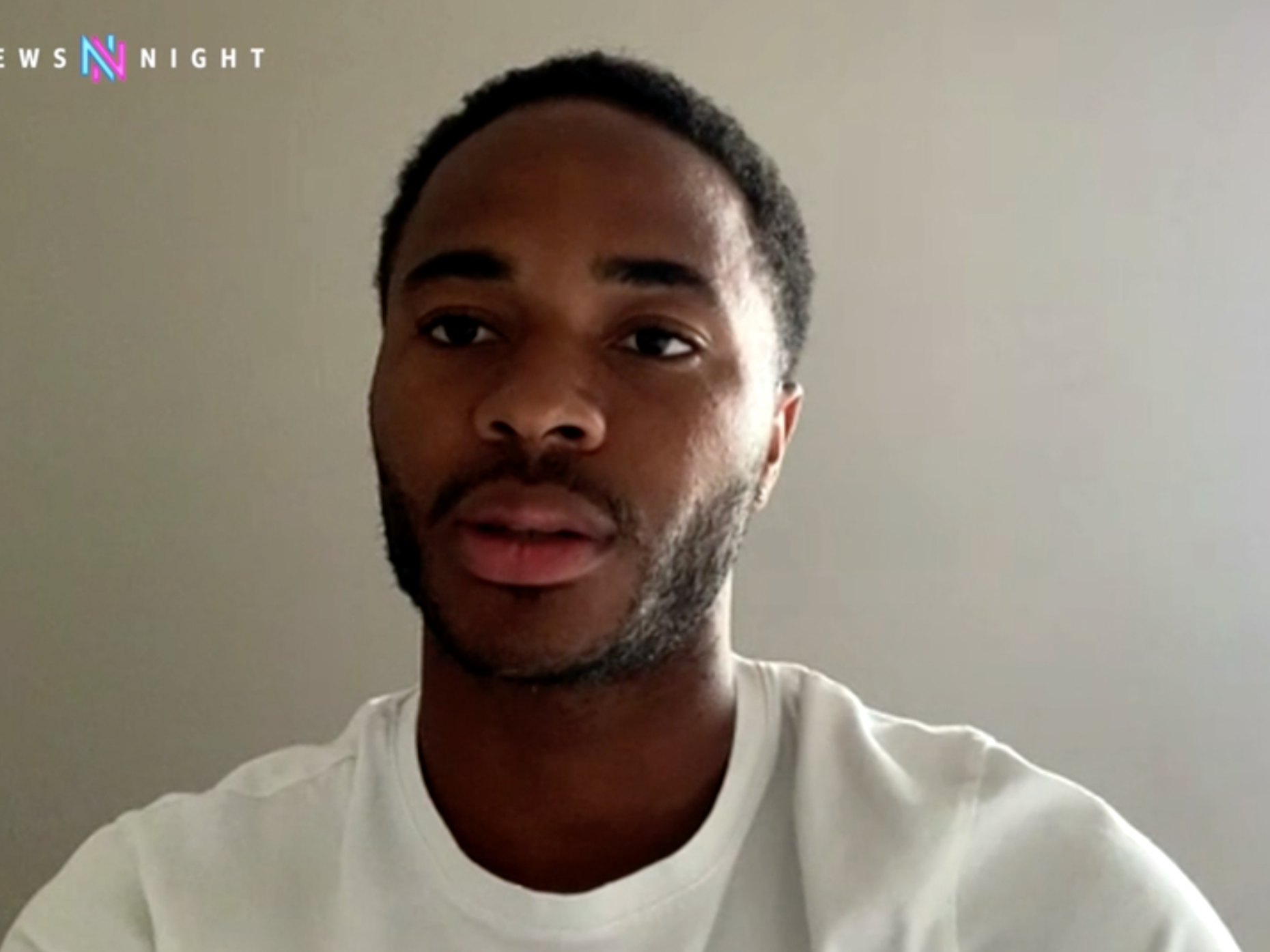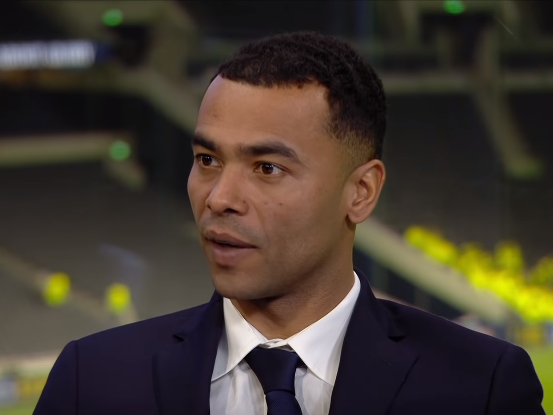‘Players can make a difference’: Gareth Southgate praises Raheem Sterling and England squad for speaking out against racism
England manager said football’s ‘biggest crime’ would be to allow players to feel as though pathways are blocked off to them

Your support helps us to tell the story
From reproductive rights to climate change to Big Tech, The Independent is on the ground when the story is developing. Whether it's investigating the financials of Elon Musk's pro-Trump PAC or producing our latest documentary, 'The A Word', which shines a light on the American women fighting for reproductive rights, we know how important it is to parse out the facts from the messaging.
At such a critical moment in US history, we need reporters on the ground. Your donation allows us to keep sending journalists to speak to both sides of the story.
The Independent is trusted by Americans across the entire political spectrum. And unlike many other quality news outlets, we choose not to lock Americans out of our reporting and analysis with paywalls. We believe quality journalism should be available to everyone, paid for by those who can afford it.
Your support makes all the difference.Gareth Southgate believes today’s football stars are far more socially conscious than previous generations and realise they can “make a difference”, as he praised players like Raheem Sterling and Marcus Rashford for speaking out on issues like the reaction to George Floyd’s death.
The England manager also said that black coaches have to see that paths into the game are possible, as he implored the sport to rise to the issues raised by Sterling.
The Manchester City forward spoke on a range of issues on Newsnight on Tuesday, including the lack of opportunities for former players like Ashley Cole, in contrast to stars like Steven Gerrard and Frank Lampard. Southgate praised Sterling for his attitude, and said it was one that seemed common to this generation.
“They’ve never ceased to impress me with their willingness to speak up on critical matters, and the recognition that they can affect the world outside their own game,” Southgate explained. “There’s a lot of work that goes on with their clubs, but there is a lot of credit that must go to them and their families for the way they are. I also think young people of their generation are wired to have a voice, to recognise they can make an impact, to not just sit back and accept the status quo.
“I think there’s a generational aspect to that, they are more confident to speak up, whereas maybe we were more reticent. We weren’t as open.

“You mention what Marcus [Rashford] has done. Going back to the beginning of [Covid-19], the NHS initiative that Jordan Henderson seemed to lead so well, Harry Maguire in his local village, Trent [Alexander-Arnold] regularly working in his community. I think it’s important they recognise they shouldn’t just sit back and be happy to be players, they can make a difference. They recognised the journeys in their own lives, what difficulties they faced where they see other kids in those areas where they grew up, the chance to make a difference for them.”
Southgate meanwhile said that the “biggest crime” football could make would be if young people today felt future paths were closed off to them, as he referenced Sterling’s comments on black coaches.
“On a broader scale, I think you’re right. We lack that representation. The biggest crime for us in any area if we’re adults looking at kids, is if they sit and think that a path in life isn’t possible. And is not accessible. I heard Jermain Defoe talking a few days ago saying ‘is it worth me taking my qualifications?’ That’s what we have to avoid. We have to avoid the feeling that you can’t achieve something because that stops some people going for it. We then have to make sure the opportunity is there when people are qualified and capable. And then of course they then have to grasp that opportunity and do well and if they can do well they’ll role model what’s possible to the next generation.
“I don’t think it would right to talk about the individuals that Raheem mentioned other than, what I would say is that I think Ashley Cole is developing very well on a similar route to what Steven did in that Steven worked in Liverpool’s academy for a couple of years. Ashley is doing that with Neil Bath at Chelsea and I talked to Ashley amongst a group of coaches a couple of weeks ago on a coach education thing and I think he is progressing really well so I’m not certain how quickly he wants to manage or if he wants to manage or coach or whether he wants to coach at first-team level or youth level.
“I think there have been initiatives in the last four or five years that are starting to make a difference. We have some very good young black coaches coming through our development teams, Justin Cochrane is somebody who I think, within our group of national coaches, he is going to be a top coach. We also shouldn’t look just at the ex-players or high-profile players. Because as we know, so many of the top managers haven’t been top, top international players and that route must also be open to black coaches that haven’t played at the highest level. There will be some super bright lads out there who have come through universities, they might the route that a Graham Potter or somebody has gone, by going back into university. So we’ve got to make sure that all of those pathways are open.”

Southgate also argued that there has been movement within the Football Association to recognise these challenges at an institutional level.
“There has been a lot of work done to make the boardroom more representative, that is gender as well as race. Paul Elliott’s involvement is an important one, not only in the respect of diversity but also to have an experienced footballer on the board.
“We have not been great in English football at getting ex-players into those executive roles full stop, whereas across Europe I say that a bit more with the sporting directors. People have spoken brilliantly over the last week, people I have had the good fortune to meet and work with, people like Troy Townsend, people like Chris Grant, people like David Olusoga, there are some really powerful messages and a lot of those will be uncomfortable for white people in particular, but they are critical voices to be heard.
“In the end it is important to hear from those black voices, but it is important to hear from white voices as well because ultimately they are going to be the people in the positions to make decisions and can open up opportunity and make a difference. We are the ones who have to be educated and I have been fascinated, I have been sat with with my kid most evenings and discussed what has gone on around the world and watched various films, read various articles because the more knowledge we have the better.”
Join our commenting forum
Join thought-provoking conversations, follow other Independent readers and see their replies
Comments